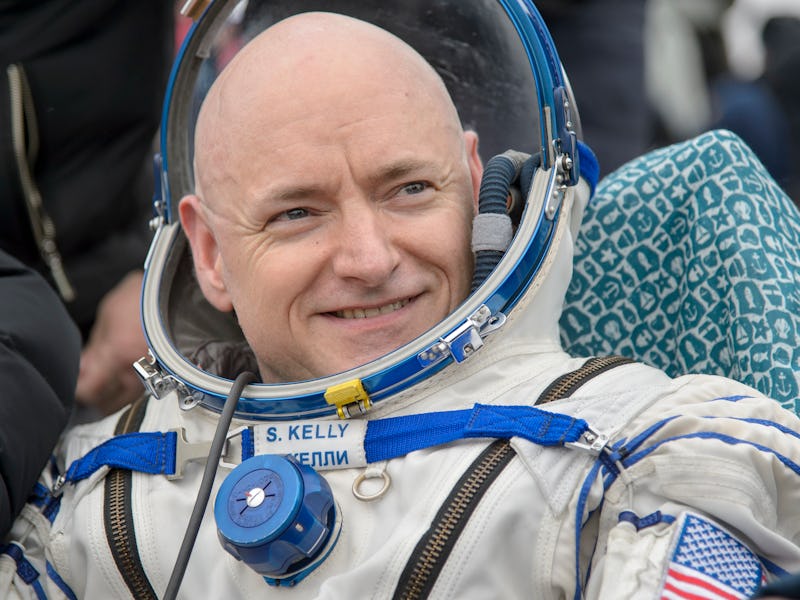The "Unforeseeable Risks" of Space Mean NASA Should Figure Out Astronaut Health Care
Getting serious about Mars and beyond means creating lifetime healthcare for astronauts.

Congress is effectively in a position to create lifetime healthcare for astronauts. The presence of record-breaking retired astronaut Scott Kelly on Wednesday at the space subcommittee hearing highlighted the various ways in which special health needs must be addressed for astronauts after they return to Earth. Kelly and others presented an array of physical challenges, from flu-symptoms to bone loss, that astronauts experience both in space and during their reclamation to terrestrial life.
But, perhaps the more telling takeaway of these talks — officially called “Human Spaceflight Ethics and Obligations: Options for Monitoring, Diagnosing, and Treating Former Astronauts” — is the fact they were spurred by the existence of last year’s recommendation from Institute of Medicine that NASA and Congress come up with workable strategies concerning healthcare because we’re crossing over into a time where, as it’s put in the recommendation, “…long duration or exploration spaceflights — such as extended stays on the International Space Station or missions to Mars — become more realistic.”
The recommendation goes on to point out that “These types of missions will likely expose crews to levels of known risk that are beyond those allowed by current health standards, as well as to a range of risks that are poorly characterized, uncertain, and perhaps unforeseeable.”
What is somewhat foreseeable though, is the massive amounts of radiation all astronauts will have to grapple with in long-term spaceflights, like a mission to Mars or even further. This hearing is certainly proof positive Congress is aware and interested in the health risks this radiation poses and is poised to do something serious about it.
Lifetime healthcare for astronauts is imperative for those who are returning home to Earth, but even more imperative for those astronauts who are potentially, living in space forever.